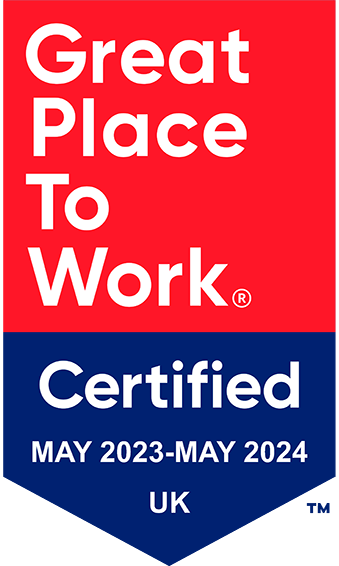The case for diversity and inclusion in recruitment is a solid one. Not only does a more diverse workforce foster a team that is more creative, has a wider range of perspectives and is even more profitable; it’s also a legal requirement under the Equality Act 2010.
Implementing inclusive recruitment practices ensures not only a wide variety of staff members, but also gives you the best possible choice of candidates. Read on for the steps you can take to avoid unconscious bias and ensure diversity in your recruitment process.
What is inclusive recruitment?
Inclusive recruitment refers to the process of attracting, sourcing, and recruiting candidates in a manner that promotes diversity. Recruiting this way ensures that individuals from various backgrounds, including those who are traditionally underrepresented, have equal opportunities to be recruited. The goal of inclusive recruitment practices is to create a workforce that reflects a wide range of perspectives, experiences, and identities, that will create a team with improved creativity, enhanced innovation, and in turn, overall improved business success.
Benefits of diversity in recruitment
Practising diversity in recruitment is not just something nice to show on your website – it’s a legal requirement. If you fail to follow the Equality Act and are taken to court, you could face serious legal ramifications – not to mention reputational damage.
Some other key advantages of a diverse and inclusive workforce include:
- Increased innovation and creativity: Diversity creates an environment rich in employees with different backgrounds, experiences and perspectives which can help improve creative thinking and ideas.
- Informed decision-making: Diverse teams are more likely to consider a broad range of viewpoints when making decisions.
- Enhanced employee performance: Inclusive environments where employees feel valued and respected tend to create higher levels of engagement and job satisfaction.
- More insightful: A diverse workforce can better understand and connect with a varied range of customers and clients.
- Wider recruitment pool: Businesses that prioritise diversity and inclusion are often more attractive to a wider range of potential candidates.
Top tips for an inclusive recruitment process
1. Ensure job descriptions are written in inclusive language
When writing job adverts, try to refrain from using gendered or biassed language. Stereotypically masculine language are considered to be words like ‘competitive’, ‘dominant’ or words ending in ‘man’ like ‘policeman’ or ‘postman’, while words and phrases like ‘supportive’, ‘bubbly personality’ and ‘kindhearted’ are often associated with female stereotypes.
2. Have an inclusive application process that is not centred around a CV
With rising costs of childcare, discrimination and a lack of opportunities, it’s important to not overlook potentially very talented candidates due to them having gaps in their CV or a perceived lack of experience. There are other ways that candidates can demonstrate their capabilities by competency-based application forms, covering letters or even more creative means.
3. Offer adjustments throughout the interview process
It’s important to consider how some candidates might require changes to the standard interview process. For example, a disabled candidate may need extra time or additional resources to complete a task. Keep communication clear throughout the process to check if they require any changes. It’s also a good idea to offer a range of dates for candidates to attend interviews, with different slots throughout the day or early evening to ensure flexibility for candidates.
4. Understand the legalities around recruiting
Anyone responsible or involved in making decisions around recruitment should have completed inclusive recruitment training. If these people do not receive training and a discrimination case is brought against you, the liability is likely to fall to the employer which can result in financial penalties at an employment tribunal.
Get help from the experts
If you want to ensure you’re implementing the best diversity recruitment strategies then Intaso can help. Our dedicated and experienced team can provide advice, guidance and feedback on inclusive cyber security recruitment practices in the cyber industry. Get in touch today for a friendly chat.








